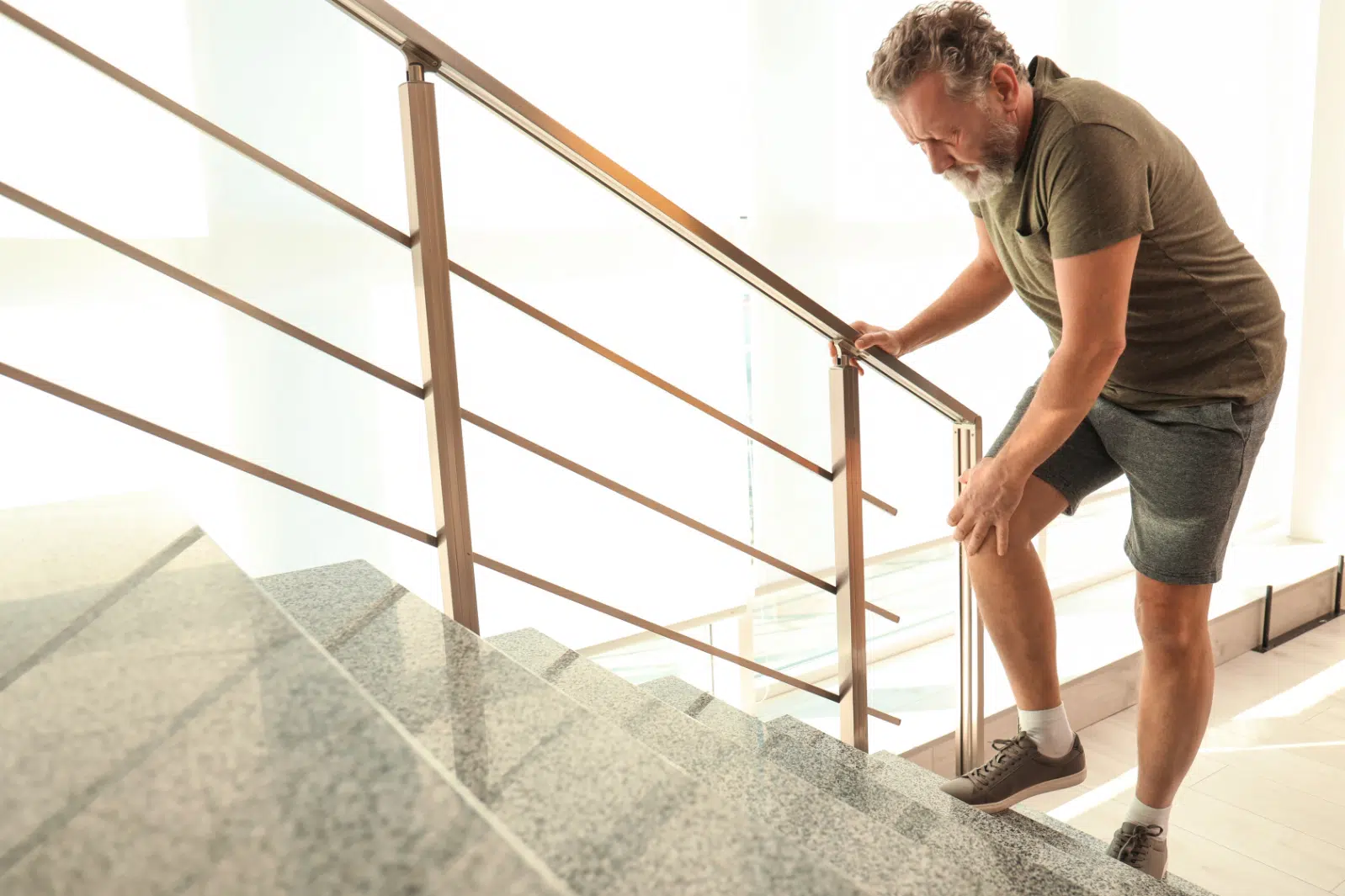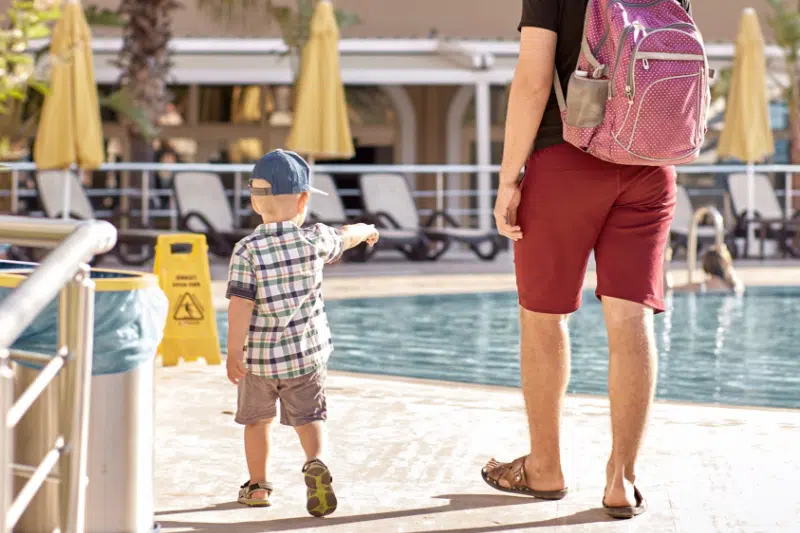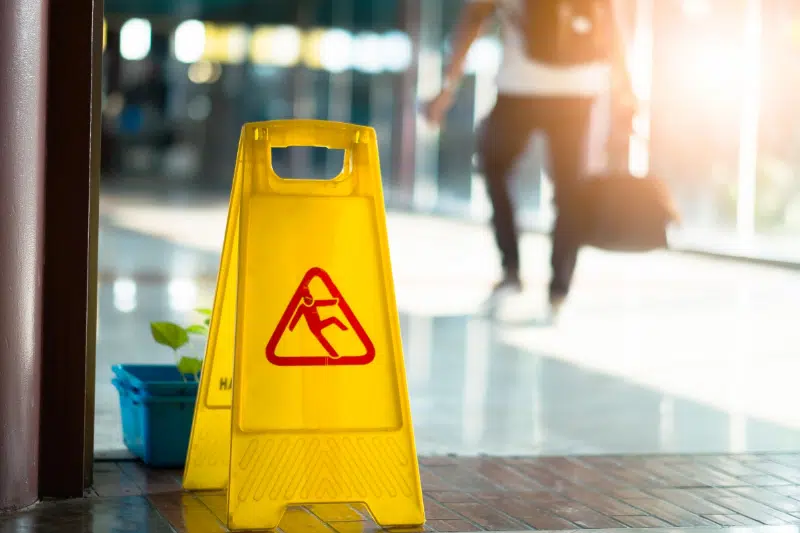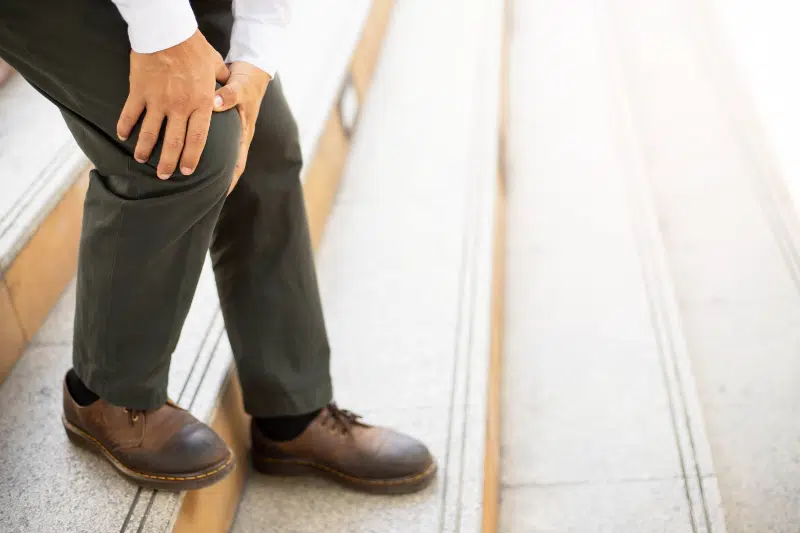A property owner must keep their property safe for anyone who has the right to be there. This is called a “duty of care.” Local governments keep public spaces, like sidewalks or the post office, safe. Business owners maintain their shops and restaurants for customers. Homeowners repair dangerous conditions as needed to protect their loved ones and guests.
At the same time, most reasonable people can’t possibly be responsible for any mistake people might make, like tripping on a step while carrying a full basket of laundry. We’re expected to be mindful of our surroundings and make reasonable judgement calls. It’s common sense to watch where you’re walking, pay attention to signs warning of hazards, and move carefully through unfamiliar spaces.
These are reasonable expectations. The term “reasonability” comes up often in slip and fall cases; it refers to how property owners and visitors to the property are expected to behave.
No matter if you’re dining at a restaurant, getting groceries, or simply enjoying the apartment you live in, you deserve to feel safe, and to be aware of any potential hazards so you can avoid them. It’s when owners neglect these basic duties that they become responsible for your slip and fall.
When Is the Property Owner Responsible?
The property owner is responsible for your slip and fall injury if they fail to keep their property safe. One of the following must apply to prove their negligence:
- The property owner (or an employee, in a commercial or public space) caused the hazard that led to the fall. For instance, not marking a slippery floor or repairing a broken step.
- The property owner knew about the hazard but neglected to clean it up or repair it.
- The property owner should have known about the hazard as a responsible caretaker who monitors their property.
A few other factors can come into play when determining the property owner’s liability:
- Had the hazard been there long enough for the property owner to know about it?
- Were the owner’s actions to remedy the situation (if taken) appropriate?
- Does the property owner follow a regular schedule of investigating the premises for any health and safety issues?
- Was poor lighting, a leak, or other maintenance issue involved in the fall?
When Is the Injured Person Responsible?
In some cases, the injured person is at least somewhat responsible for their slip and fall, and that can impact the success of a personal injury case or slip and fall lawsuit.
Texas follows a rule of comparative fault, which means that injured people may be found partially at fault for their injuries and receive less compensation. In Texas, if you are found to be more than 50% responsible for the incident, you cannot receive any compensation.
How could an injured person be partially at fault for their injury? Possible ways include:
- Ignoring signs about wet or damaged floors that have been properly placed by the hazard
- Trespassing somewhere that isn’t open to the public or visitors, such as a construction site or condemned building
- Moving in a way that increases injury risk, such as running, jumping, or twirling somewhere that isn’t designed for such movement
For example, if you slip, fall, and get several broken bones in a store, you might have a claim for $100,000. But then it’s determined that, because you were texting when you fell on the uneven ground outside the store, you are 30% at fault for the accident. Ultimately, you might only end up with $70,000 of that original claim.
If you contributed to your injuries in any way, your case will be significantly more complicated. It’s in your best interest to work with an experienced personal injury lawyer who understands injury law and comparative negligence and knows how to present your case in the best light.



